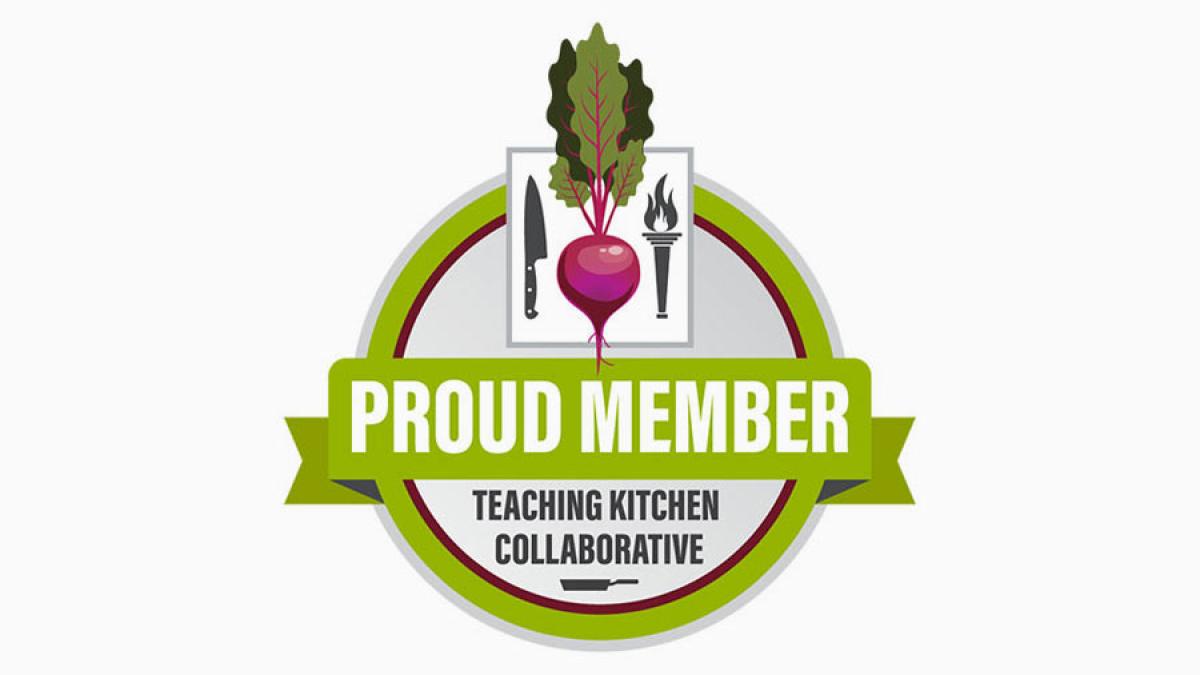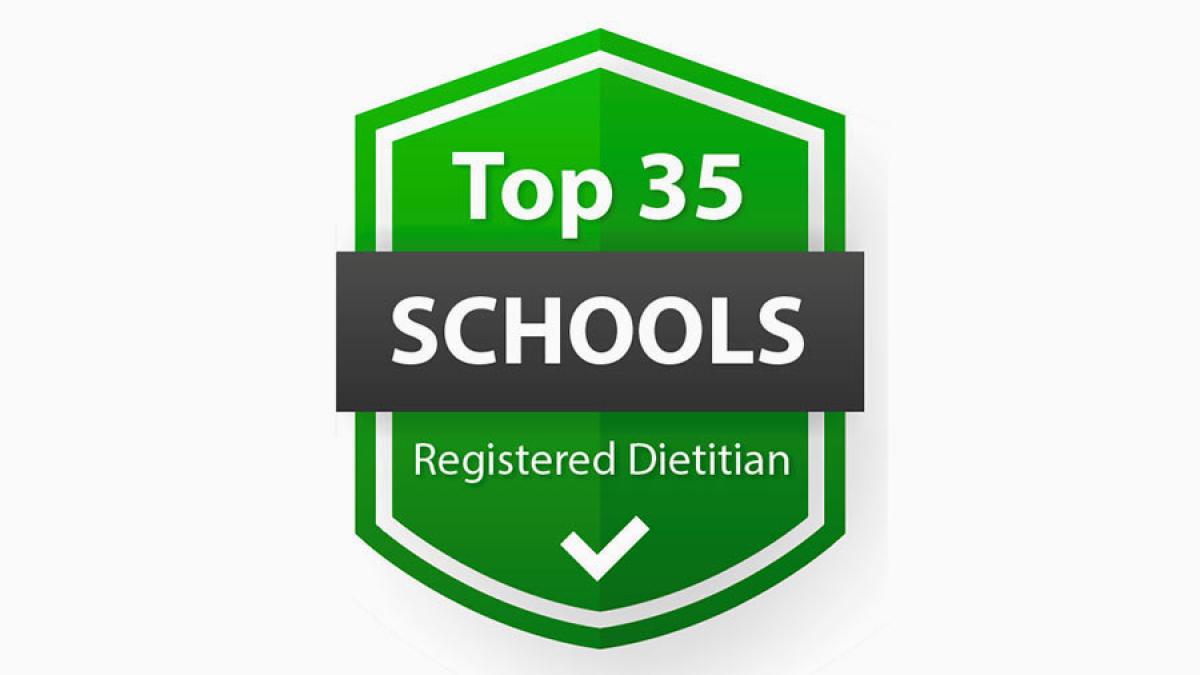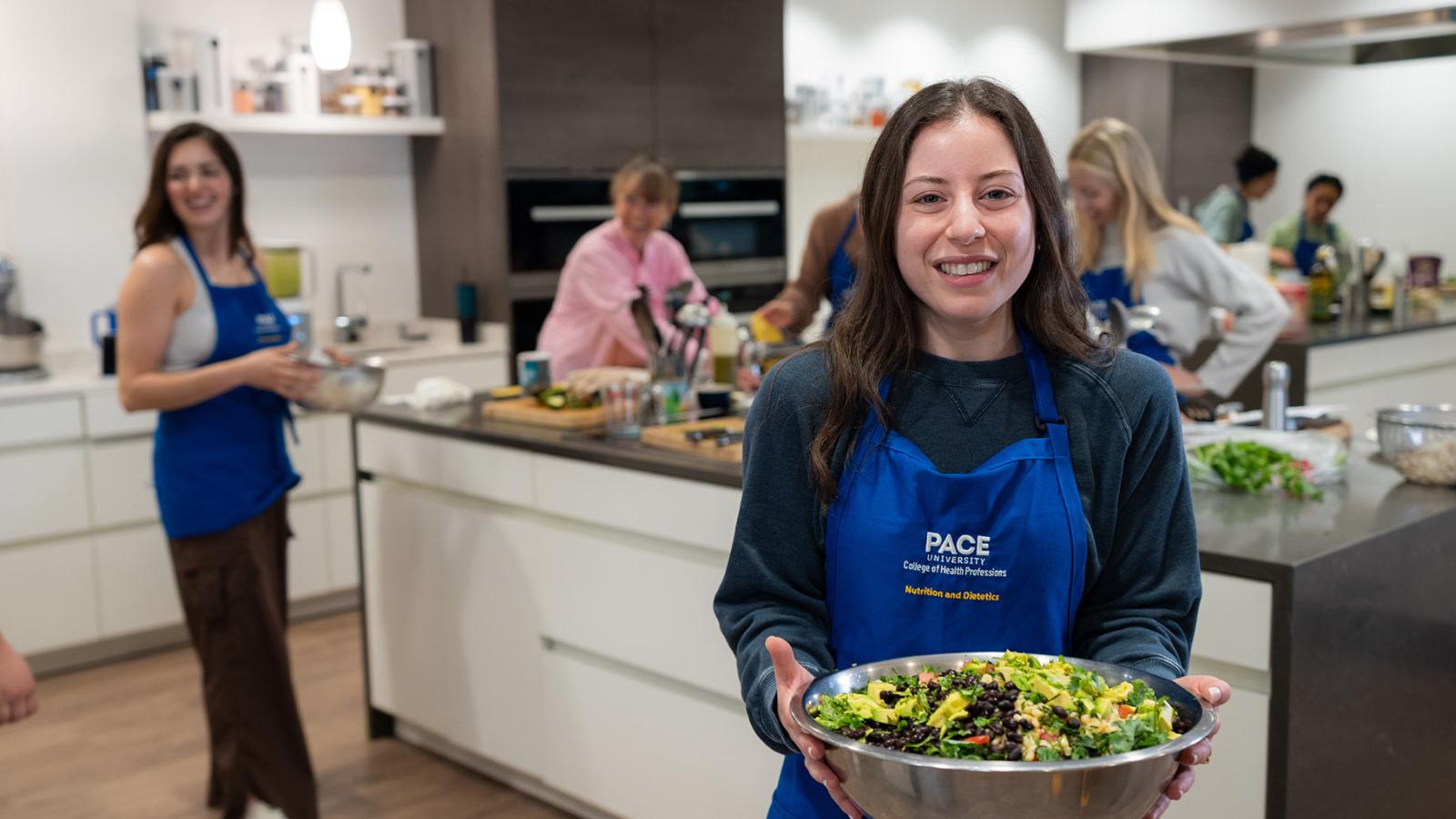
Nutrition and Dietetics
Culinary Nutrition And Food As Medicine
Our nation is burdened by high rates of nutrition related chronic diseases, such as heart disease, diabetes, hypertension, overweight, and obesity. Pace University’s Nutrition and Dietetics program is designed to help you address these challenges head on. You will gain the knowledge and skills to work as registered dietitian nutritionists (RDNs) in a wide variety of settings, helping people eat well, prevent and reduce chronic disease, and promote longevity.
Why Study Nutrition And Dietetics At Pace
Simultaneously complete both a master’s degree and the 1000 hours of supervised practice (internship). Receive your verification statement and sit for the Registered Dietitian-Nutritionist (RDN) exam in just 2 years.
Diverse Supervised Practice Experiences
Food Service Management (150 hrs)
Community Nutrition (300 hrs)
Clinical Nutrition (350 hrs)
Elective Rotation of your choice (200 hrs)
Our comprehensive curriculum emphasizes culinary nutrition education, rigorous clinical coursework, and food equity and access issues. This well-rounded program equips you for success in a variety of career paths.
Become An Authority On Nutrition
Gain experience through supervised practice in sites such as farm-to-table restaurants, K-12 school food programs, food pantries, Federally Qualified Health Centers, regional hospital systems, community hospitals, eating disorder facilities, private practice settings, long-term care facilities and much more.
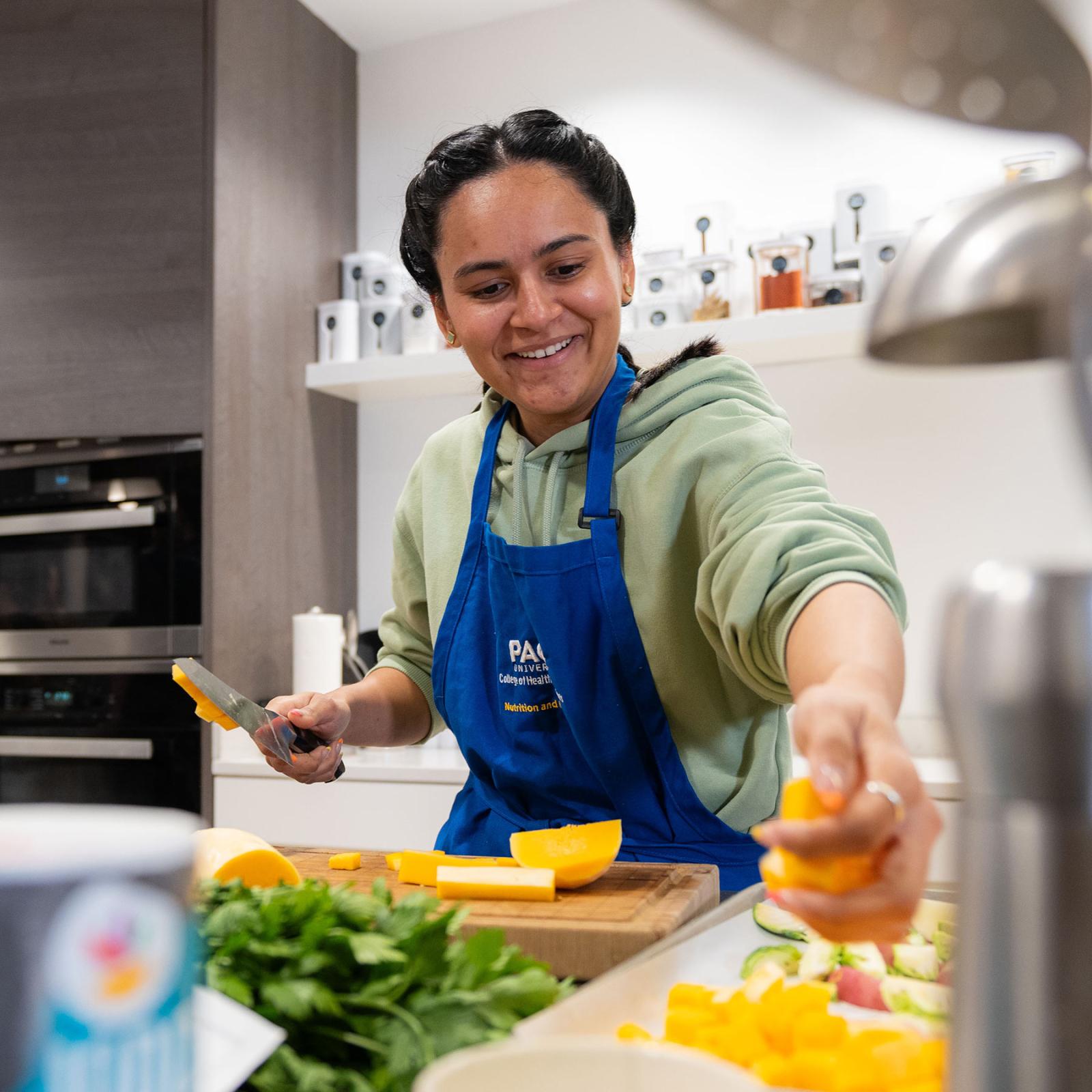
Here, You'll Learn By Doing
Practice culinary nutrition in the state-of-the-art Zwilling Cooking Studio. Participate in Pace University Teaching Kitchen activities on campus, educating the entire Pace community.
Perform hands-on nutrition assessment and intervention activities in the simulation lab. Engage in interprofessional education and collaboration activities with future colleagues in other College of Health Professions programs.
Experience the Mediterranean Diet and lifestyle and earn supervised practice hours through Foodcultureology study abroad trips.
What can you do with a Nutrition and dietetics degree?
Employment of RDNs is projected to grow 11% from 2020 to 2030, faster than the average for all occupations. Nutrition and dietetics is a growing field with many traditional job possibilities in hospitals and community-based organizations, as well as an expanding array of non-traditional positions.
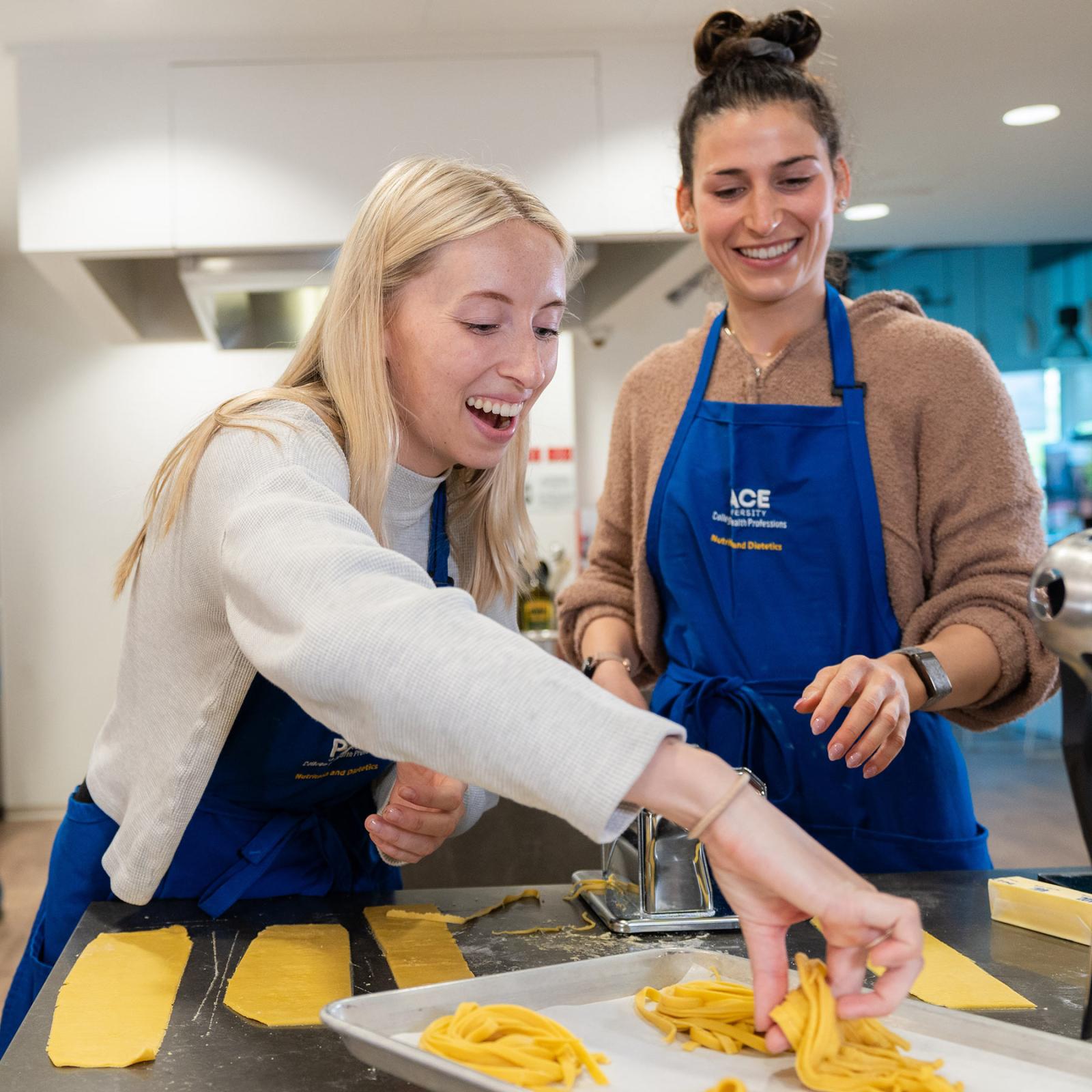
Nationally Recognized
The TKC is a network of thought-leading organizations using teaching kitchen facilities as catalysts of enhanced personal and public health across medical, community, school, and corporate settings.
The coordinated Nutrition and Dietetics, MS program at Pace University is among the top Registered Dietitian programs in the country.

Join an Information Session
Pace University's Office of Graduate Admission hosts virtual information sessions throughout the academic year. Learn more about the MS in Nutrition and Dietetics, what Pace University has to offer and what it takes to apply.
